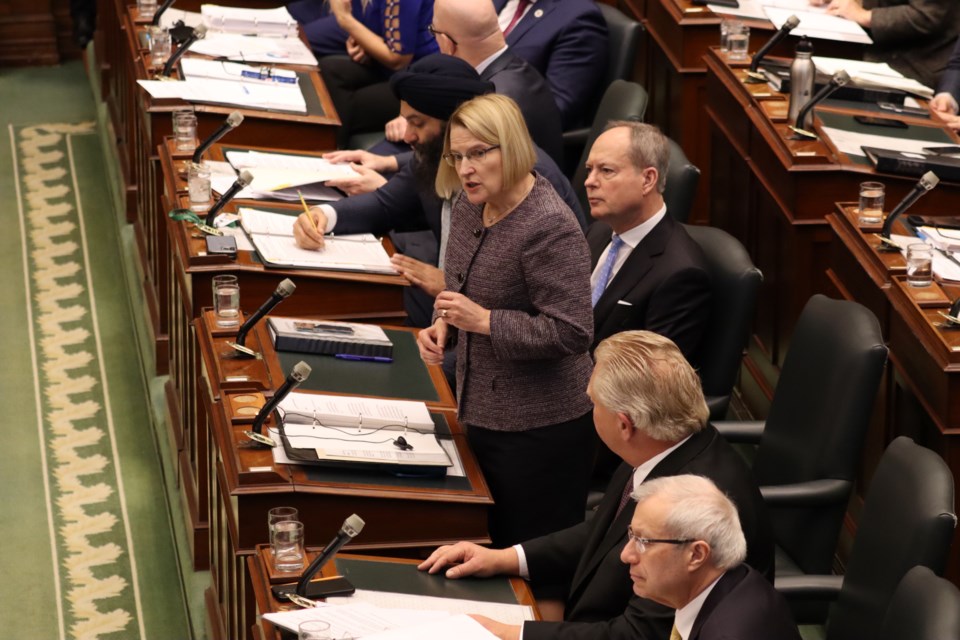Canada's health ministers, including the federal health minister, will meet in Charlottetown, Prince Edward Island next month, The Trillium has learned.
P.E.I. will host the talks on Oct. 11 and 12, according to the Canadian Federation of Nurses Unions (CFNU), which will host a policy breakfast for the ministers on Oct. 12.
The group will present preliminary findings from its study with Queen's University about the rising use of agency nurses — a stop-gap measure used by many hospitals to cover labour shortages — which charge an average of $140 an hour according to one study, spokesperson Adella Khan said.
Some provinces said they look forward to talking with their counterparts about the best way to stem the shortage of health workers that continues to cause emergency room closures and treatment delays across the country — and, of course, to ask the federal government for more money.
Premier Doug Ford said that's just what Health Minister Sylvia Jones will focus on.
Ontario's health-care needs are "growing at a rapid pace," Ford said when asked about the meeting at an unrelated press conference on Monday. "And a lot faster than the couple of points that they gave us in extra funding there."
Ford was referring to the health ministers' last major meeting in February, when premiers accepted $46.2-billion in new federal health funding over the next decade. It wasn't the permanent health transfer increase the premiers had sought, but it was enough to quell their pressure campaign for the time being, after many speedbumps.
"But there's areas that we can all work (on) together, especially on the staffing side, too," Ford added, "enabling nurses and even doctors (to go) from one province to the next and be able to have gainful employment."
Federal health minister Mark Holland's office said the meeting will be a chance to prepare the health system for the future.
"We have a unique opportunity to drive collective action on health and health care. We’re committed to working with provincial and territorial counterparts and other partners across the country to make progress on these important issues and improving health outcomes for Canadians," spokesperson Alex Maheux said in an email.
Ontario Medical Association President Andrew Park won't be at the meeting, but said he's hoping for "more money."
He said he wasn't giving up on the ask for a permanent health transfer funding bump, given the shortage of family doctors across the country.
"So, realistic or not, that's what needs to happen," he said.
The Registered Nurses' Association of Ontario also won't be in attendance, but a spokesperson said Ottawa needs to better protect public health care from for-profit actors.
Alberta's acting health press secretary, Scott Johnston, said his government's top priority is collaborating with other provinces on recruiting, retaining and training health-care workers.
Alberta has launched an ad campaign trying to poach residents of other provinces, including health-care workers. The Alberta Is Calling website advertises the average salary of a nurse practitioner in the province as $97,452.
Johnston said the province is also looking for updates from Ottawa on its plan to spend $1.5 billion for access and affordability of drugs for rare diseases; as well as spending on family health, backlogs, mental health and addictions and modernizing health systems.
Saskatchewan Health Minister Everett Hindley said he looked forward to sharing strategies and asking the feds for more help, "particularly in efforts to recruit staff, which is challenging across the country."
This story has been updated to clarify that the CFNU will present preliminary findings from its report. A previous version referred to "findings."




